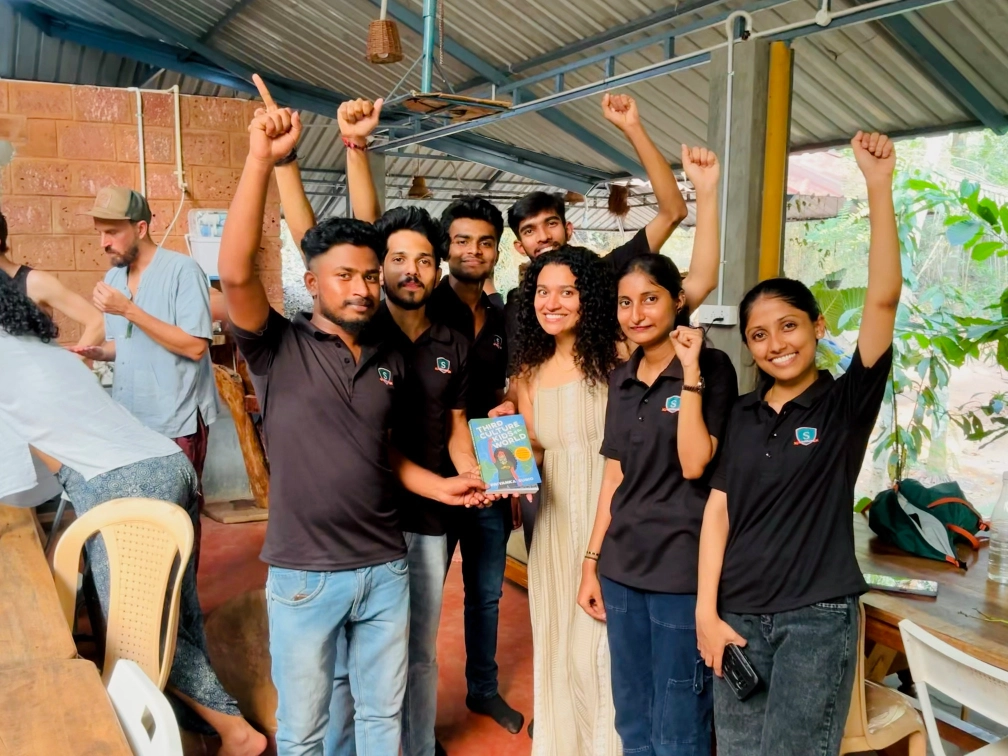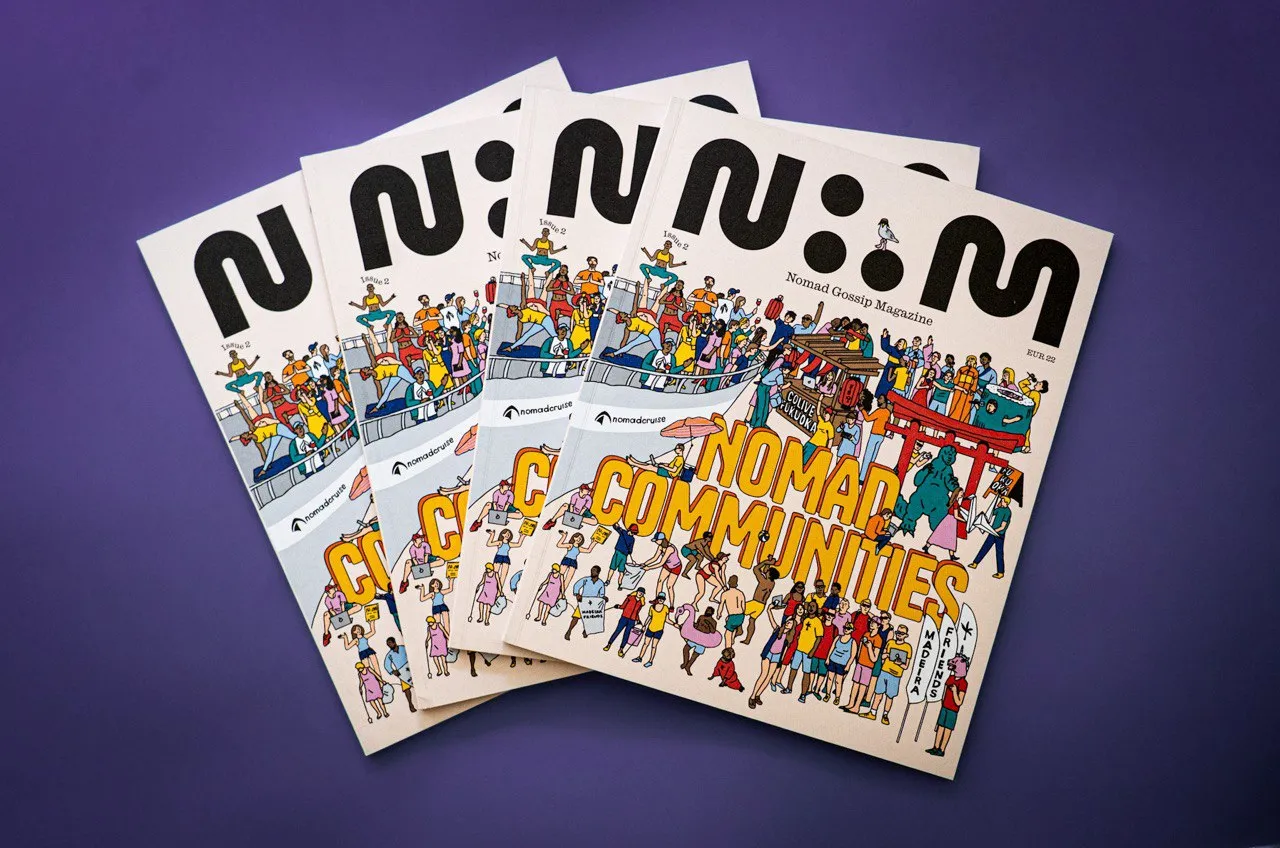Travel as Activism
By Ms. Priyanka Surio
Deeper than Travel
Another unnamed black man was killed in America.
At the time of George Floyd’s murder amidst a global pandemic, I had no idea how much antiracism and global civil rights movements would come to influence my perspective and writings on travel. When I worked on my first non-fiction book highlighting sustainable travel as a practice, I realized that I could not promote mindful, responsible travel without illuminating the bias and racism that still exists for locals and certain groups of people traveling the world for whom harmful stereotypes still exist.
As a multi-cultural woman of color, I’ve experienced my own share of colorism — being considered too dark to be beautiful or intelligent, micro-aggressions to include surprise at how well I speak English or skepticism on my ability to afford and travel solo, and racial slurs or name calling. Despite these negative experiences, I resist the labels and move forward with the belief that travel can be an avenue to dismantle racism and bridge a more connected, accepting world.
Modern day nomads know a thing or two about resisting. We resist the conventional path, the status quo, the expectation put upon us by others on how to live our lives, and the lure of settling in one place. We seek deeper experiences from the world by weaving long-term travel into our lives and finding out what it means to exist in different places or on the road. We define ourselves not by our merits or jobs, but by our experiences on this journey.
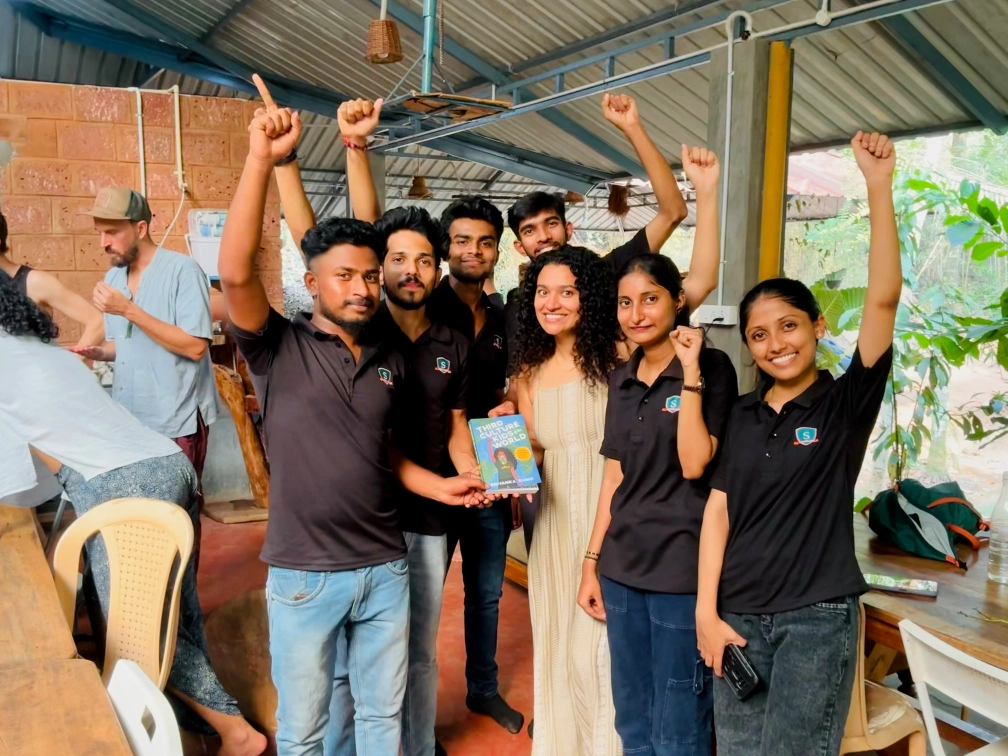
As a nomad for five years, the wide-ranging perspectives I have witnessed and the friends I have made around the world inspire me to visit places like Ghana, India, Morocco, Hungary, Mexico, and Costa Rica more than once in my effort to plant metaphorical (and perhaps literal) seeds that deeply integrate me with these global communities. I intentionally maintain a nomadic route so that I can revisit these places every couple years. I also revisit places in my home country of America inspired by climate action weeks, community potlucks, or genuine cultural experiences with indigenous tribes.
It’s always been deeper than travel for me, which is why I’d like to share with other nomads how we can consider travel as a force for good in the places we visit and live. “Travel at its best is activism with a passport,” a fellow environmental justice advocate, Melissa J. Rowley, writes about my journey in her Rolling Stone article. She reflects on the sustainable travel formula I created, which inspired her to travel with more of a purpose.
A Formula for Sustainable & Regenerative Travel

Adapted from Third Culture Kids of the World and Sustainable Nomad by Priyanka Surio
My personal ‘travel activisms’ can give you an idea of the experiences to seek out that can position you as a global activist and citizen.
-
India. Organized by Gen Bharat Ecovillage, I took a sleeper bus with 20 other travelers across India to visit eco-villages, actively help with cocoa harvesting on organic farms, partake in cultural festivals, consult on permaculture practices, and build a strong network of like-minded regenerative travelers.
-
Ghana. Hosted by the Ghanaian government and tourism agency, I participated in a global campaign to unite the African diaspora and beyond with pan-African conferences, cultural festivals, and entrepreneurial showcases in Accra, Ghana.
-
Costa Rica. Guided by the Bribri indigenous people, I visited local villages on the rivers between Panama and Costa Rica, learning about community tourism projects and helping with cacao grinding. These tours are guided by locals and include several options for longer-term stays to learn while volunteering.
-
USA. Organized by a mix of nonprofits, local government, venture funds or accelerators, and universities, I have participated in six different climate weeks around my home country (i.e., Washington DC, New York, Seattle, San Francisco, Los Angeles, San Diego) either as an organizer, event host, or to immerse myself in the city’s climate actions.
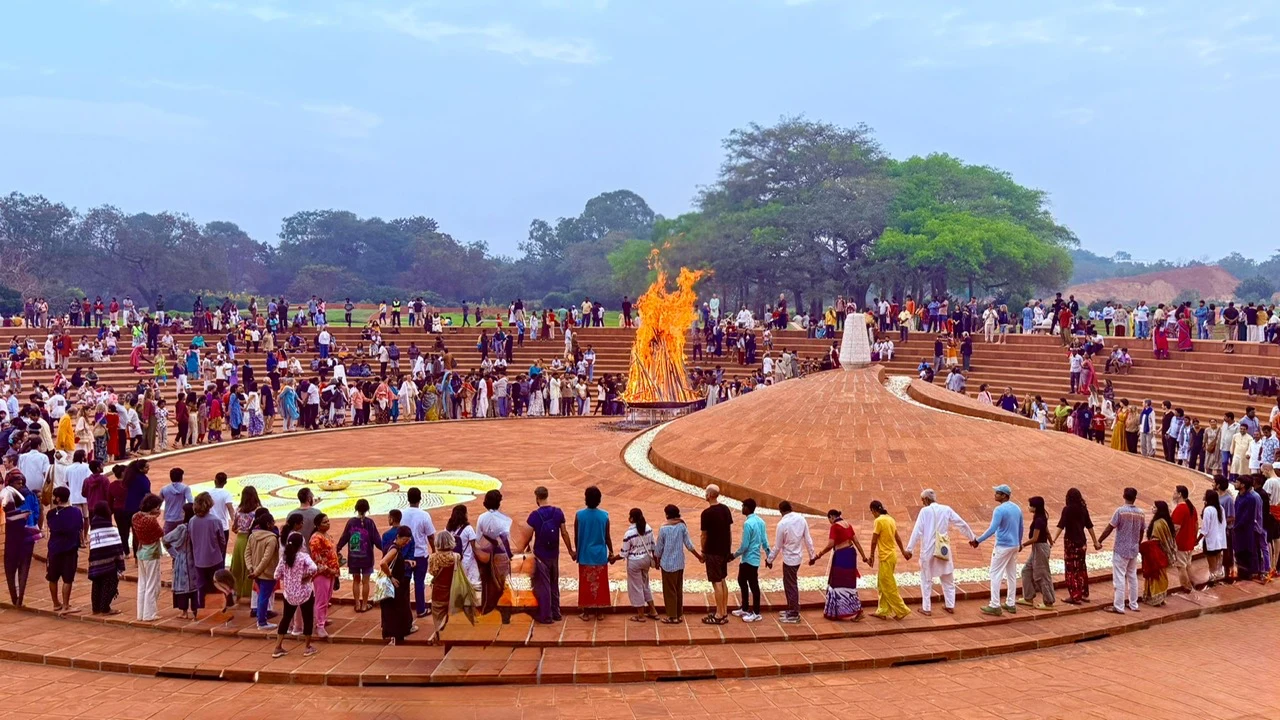
Beyond these examples, I offer a formula and framework for how to get started on your journey of being a more actively engaged nomad in the communities you live in and the causes they care most about. This perspective shift positions us to more authentically engage with and become part of the local community. By acting on some of the most pressing issues and being more intentional with how we live in each place we visit, we can indeed leave places, people, flora, and fauna better than when we arrived.
Nomads have an opportunity to serve as bridges between cultures, countries, and different people by nature of being exposed to them. Through our first-hand experiences, nomads can show others how to be more considerate, accepting, and engaged with the planet, fellow humans, or creatures.
Change the World
Once these sustainable travel mindsets have been adopted, there are four action areas that are agreed upon by various experts in the sustainable tourism and travel industry. You can decide to focus or plug into any of these areas through your nomadic journey, and chances are, you already practice at least one of them. Because we view travel as a vehicle to change the world, I call these the world changing forces and they include reducing carbon footprint, protecting wildlife and biodiversity, fueling local economy, and promoting cultural awareness.
You might decide you want to save turtles by removing plastics from the ocean and repurposing them into beautiful art pieces. You may decide you wish to reduce your carbon emissions from your transit by choosing more sustainable modes of transportation like taking a train, wind sailboat, or biking. You may decide to ask locals for recommendations instead of automatically choosing to visit touristy places or buy from the local market instead of eating at foreign chain restaurants. I found myself practicing these actions by visiting wildlife conservation centers or rescue shelters instead of zoos, removing single-use plastics by carrying refillable water bottles or aluminum straws, walking or cycling whenever I can, and building trust with locals to share in authentic cultural practices that are not performative or intended for the tourist.
The most important thing you can do is spread this intentional way to ‘nomad’ with others you meet so that instead of being an annoyance or drain on resources, we are viewed as global citizens and advocates of this mission to bridge a more connected, kind, and thriving world.
Finding Truth
First, we must research and uncover what is true about the places and people we visit, by visiting museums or historical archives, speaking with locals, or engaging with community-based organizations. Once we learn the truth, we should uphold it, share it widely with others, and correct the wrong stereotypes when we encounter them as we ourselves aim to walk in that truth through actions and words.
The first truth I had to realize about traveling as a hobby and an industry is that it is largely extractive, unsustainable, and may disrupt or attempt to erase a country’s culture through colonialism, capitalism, and gentrification of neighborhoods that have evolved from mostly local to expat or foreign.
One young activist, Greta Thunberg, called the travel industry out through “flight shaming” by highlighting their contribution to emissions and pollutants in the air that have other downstream effects on humans. Since her sailing expedition to the United Nations, sustainable aviation fuels (SAFs) and other waste or emissions reduction efforts have increased. Similarly, travel influencers like Shivya Nath and Manuel Bergmann have shed light on how environmental degradation, overtourism, and waste have impacted once pristine natural habitats, as they share messages that have inspired more eco-tourism experiences or volunteers who wish to contribute to regenerative agriculture through organic farm stays or other community-based efforts.
Open-Mindedness
One of the first lessons travel teaches many of us is to be open-minded. As we get out of our comfort zones; from the bed we sleep in, to the food we eat, to the languages we surround ourselves with, we also expand our capacity to learn and understand. If we are to transform from a tourist mindset to local mindset, we must become engaged citizens in the places we visit, open to listening to the people and then applying that newfound knowledge.
Every small effort or action adds up, including learning a few common phrases or expressions in the local language. This also applies to English speaking countries where learning the local slang can increase your awareness of the culture and connect you with the locals. A phrase that I use when encountering anyone from Ethiopia both in and out of the country is the Amharic saying, Agar Acho Konjo Neow (phonetically spelled), which translates to “your country is beautiful”. This simple phrase goes the distance in building trust and friendship.
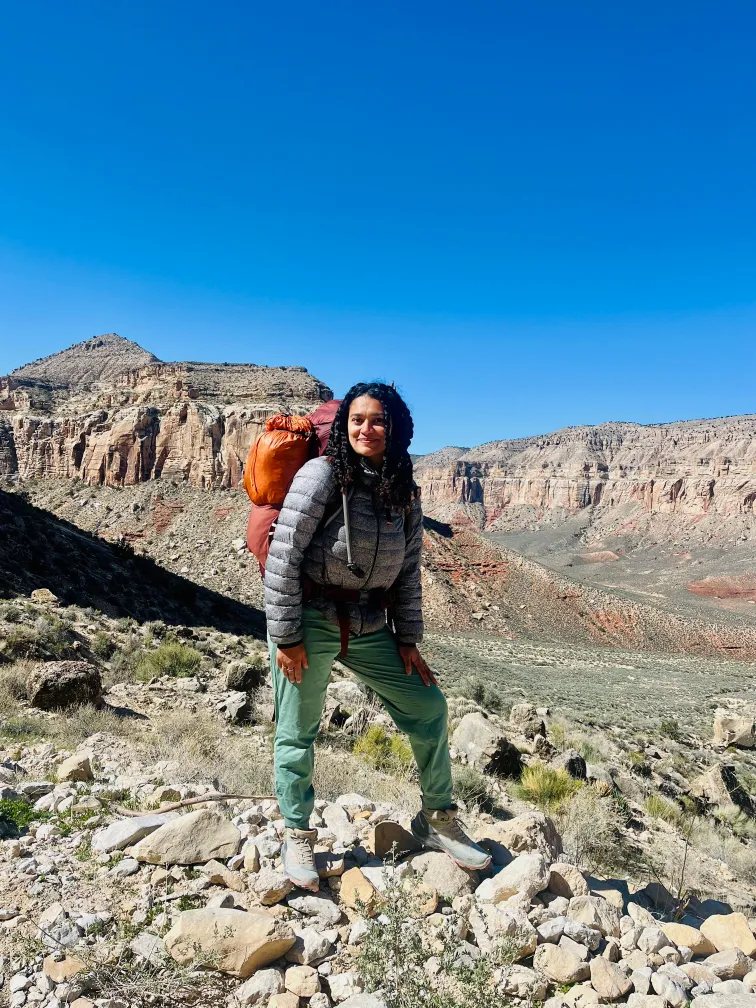
Another small action to take is spending time in the natural habitats to reconnect with the planet and re-inspire yourself to protect the environment. In Cahuita, Costa Rica, I lived in an open tree-house concept with my bed in the heart of a jungle full of vibrant animal sounds and diverse bugs. At first I wanted to shoo the bugs away, but then I recognized the symbiosis they had with the treehouse, the jungle, and each other, and decided that living in peaceful co-existence with them was better.
Resilience
Resilience is not a badge of honor but rather a necessary response to the state of the world, post a pandemic that shut down the world (travel in particular), a civil rights movement calling out police brutality, or black violence we witness between governments and people. There is also the larger threat of worsening disasters like flooding or hurricanes, extreme heat waves melting airport runways and disrupting powerlines, and the reality that many will have to move or leave their homes as a result.
Whether we agree on why these occurrences are happening or not, they have a real impact on us all and as nomads living or visiting those places, we should be even more mindful of what critical resources we use. For example, both Puerto Rico and Hawaii issued statements to strongly discourage travel during the respective disasters they faced with Hurricane Maria and the wildfires. While we may choose to work and live from anywhere, we should understand the strain we might place on these communities and find other ways to contribute or inquire how we can be most helpful in such a difficult time.
Resilience is also about overcoming fears we may have, whether that relates to engaging the local people or trying something unfamiliar. I recall a sleepless night camping in Patagonia, Chile as I questioned whether I was cut out for wilderness camping and miles of hiking. Post-hike, I basked in feelings of accomplishment and empowerment as I reflected on how many other hikers commended me for solo hiking the trail with skill and a good pace.
Giving Back
Finally, we can adopt a ‘giving back’ mindset once we have done the work to uncover that what we are giving is what locals actually need or would appreciate. Whether we give with our time, skills, expertise, money, or all the above, there are no shortages of formal (e.g., workaway, World Wide Opportunities on Organic Farms, volunteering abroad) or informal (e.g., local beach or park cleanups) opportunities to give back.
A good rule of thumb is to ask, “How can I help? What would you like or need from me?” and giving space to listen to the community or person as they exercise trust to share their needs with you. This is a direct contrast to us plugging our solutions into the equation or thinking we know best. We may even find ourselves planning for sustainable long-term support, not just one-off volunteer projects.
Please check out additional travel activism resources here:
Books
- Sustainable Nomad: Field Guide
- Third Culture Kids of the World: Exploring Sustainable Travel Mindsets
- The Ethical Traveller: 100 ways to roam the world without ruining it
- Rolling Stone Article: The New World We’re Designing, One Trip, One Plant and One Story at a Time
Organizations
- Intrepid Travel Active-ism collection of trips
- IAATO for environmentally responsible private-sector travel to Antarctica
- The GREEN Program: Sustainability Study Abroad Programs
- Green Schools
- Global Ecovillage Network
- World Wide Opportunities on Organic Farms
- Global Citizen
- Ethical Traveler
Regenerative movements
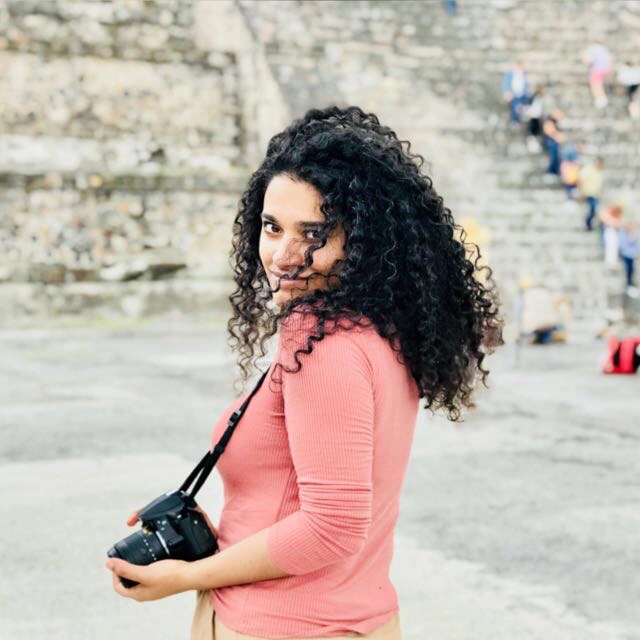
Author bio: Ms. Priyanka Surio is a two-time published author of nonfiction books on regenerative and sustainable travel. She has traveled to over 80 countries, 7 continents, and all 50 U.S. states and considers herself a global citizen with no one permanent home as an Indian-Hungarian-Romanian-American. She stays involved with various initiatives spanning India, Africa, and the Americas with a sustainable urban planning, climate action, education, health, and economic empowerment. She currently works as a government consultant to improve health and social care. She has private sector experience working in venture capital and at Google, where she advanced innovations, products, and companies in health and sustainability. Find out more about her here: linktr.ee/pstravelstories
What ways do you practice travel activism? Share your experiences and join the conversation on building a more sustainable, equitable future through nomadic living.

